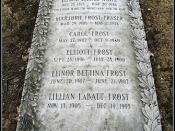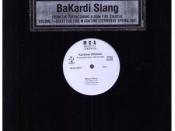Individuals of all languages have variations within their own speech. People tend to shift from one dialect to another dependent on who they are speaking with and the relationship in which they maintain. The following will breakdown and explain the dialect shifting that occurs in a day in the life of Mr. Contondere.
When Mr. Contendere begins his day in the presence of his wife and son. He speaks in an informal, intimate and friendly manner. The three individuals have close solidarity and are comfortable speaking informal Black English. People who have close social relationships will generally use less careful pronunciation, talk faster, show more emotion and stand closer to one another. I would imagine that this is what goes on in the Contendere home. Also Mr. Contendere's wife addresses him as "ÃÂNolo' his first name because in the home they share the same status "ÃÂ husband and wife or mother and father.
The son calls Mr. C "ÃÂDaddy' this is an intimacy marker which shows how close they are even though Mr. C is of higher power.
Mr. Contendere now goes to his office and converses with his staff and colleagues. The staff members address him formally because they are of lower status and no solidarity is evident. If they had close solidarity than they would be more likely to call him "ÃÂNolo'. The other lawyers call him by his first name because they are of equal status and possibly close solidarity. There is not enough information to know this as a fact, but often people of equal status have similarities that create bonds and therefore closer relationships. Mr. C addresses everyone by first name because of the status relationship. It is worth noting that now he is speaking in Standard Black English because the work environment is more formal than home.
When Mr. Contendere heads to the city jail he takes off his suit-jacket and puts on his informal Bills jacket. This is the first sign that his dialect is going to shift. Mr. C greets the suspected burglar with his first name "ÃÂRobert'. In the beginning Mr. C is more formal and then realizes that he has to start speaking in Robert's dialect in order to effectively communicate. Mr. Contendere switched to an informal street-wise register of Black English. This manipulation creates solidarity which increases Robert's comfort level. Robert begins to cooperate.
The last appearance of Mr. C's day is a committee meeting for Buffalo Downtown Development. Mr. Contendere changes back into his formal attire and now speaks in a formal standard English. His vocabulary has increased and he makes use of a lot of technical legal vocabulary. The change in language helps him maintain his status. If he were to speak in Black English he would be deemed an outsider. When in a business setting the language used should be culture-neutral to involve everyone. The increase in vocabulary used is a sign of his intellect. Mr. Contendere is addressed as "ÃÂAttorney Contendere' to state his status and therefore allow others to determine their degree of power in relation to him. The amount of solidarity is undetermined, although no solidarity is apparent.
Before observing a conversation among a mixed-sex group of speakers I referred back to my notes and acknowledged gender related language markers that I should take note of and these are the examples I discovered. Some of the traditional gender markers were violated and some were proven only stronger.
WOMEN TEND TO USE MORE STANDARD PRONUNCIATIONS AND MEN TEND TO USE MORE NON-STANDARD PRONUNCIATIONS.
The women and men I observed generally used non-standard pronunciations. One of the women exclaimed "Are you kiddin' me?"ÃÂ as opposed to "Are you kidding me?"ÃÂ An example of the men using non-standard pronunciation is when they greeted one another with "Whatz up?"ÃÂ instead of "What's up?"ÃÂ WOMEN ARE SAID TO HAVE A GREATER PITCH RANGE AND MORE FREQUENT PITCH RANGES.
This was absolutely true. The women were very emotional when conversing. The men on the otherhand seemed more controlled and consistent in regard to their pitch. The men never spoke as high as the women's lowest note. If a man speaks in a high pitch he is loses his masculinity.
WOMEN USE MORE INDIRECT SPEECH ACTS AND MEN USE MORE DIRECT SPEECH ACTS.
One of the women said "Will you grab me my drink, please?"ÃÂ This was the polite and somewhat shy way of getting someone to do something. The man said on another occasion "Pass me the lighter."ÃÂ This was a more stern and powerful demand rather than a question.
MEN INTERRUPT OTHER SPEAKERS.
This did not happen at all and I was quite surprised! It was actually the women who ran the conversation and did much interrupting of one another.
WOMEN ARE SAID TO USE LESS SLANG THAN MEN.
Both the women and men used slang. The slang that the women used was very emotional. Sometimes I could tell what they were saying just by the tone and pitch of their voice.
Throughout their conversation I did not notice anyone using tag questions or certain vocabulary items that are associated with men versus women.
Times they are a'changin'. I believe that the current important gender-identification markers for college-age students at UB are slowly fading away. I think this is due greatly to the fact that women are becoming increasingly equal with men. They now have the same jobs (even if they make $.70 to their $1) and partake in similar activities. The women in college realize that they can do anything that they want. I hope that overall women are gaining confidence. The group I observed are college-aged students. The women used slang and didn't wait for their turn to speak. The men didn't interrupt but did use swear words and more direct language. The men I observed fit the markers much more so than the women.





